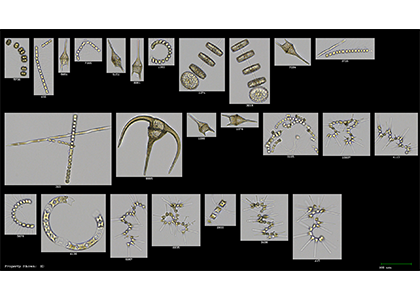OSM Town Hall, Friday February 23rd 2024, 12:45 - 13:45 CST
Convention Center, Room: R02-R03, Second Floor
Building a Community of Practice for the Collection and Assessment of Operational Phytoplankton Observations
The number of particle imaging instruments (PII) for quantifying and identifying phytoplankton in aquatic environments has grown over the last decade. PIIs are poised to revolutionize our understanding of planktonic ecosystems and will allow us to effectively monitor global changes over time. Each PII and sampling method has inherent limitations associated with the detection and imaging of particles, and the environment being sampled. Such standards have been established for optical and biochemical measurements, many of which have been reported in a series of protocol documents, including the IOCCG Protocols for Satellite Ocean Colour Sensor Validation. The OCB Operational Phytoplankton Observations (OPO) working group was formed to develop a set of best practices for both the collection and downstream processing of phytoplankton images produced by PIIs that will result in consistent, quantitative observations of phytoplankton taxonomy and biomass.
Our goal for this Town Hall will be to provide a space and framework for discussion around emerging topics related to best practices when using PIIs through interactive breakout groups.
Potential discussion topics:
- Data and derived products
- Imaging data management and sharing
- Operational considerations for imaging instrument deployment
- Uncertainties in imaging data
RSVP here by Friday February 16th to help us gauge numbers and help us refine the discussion topics.




